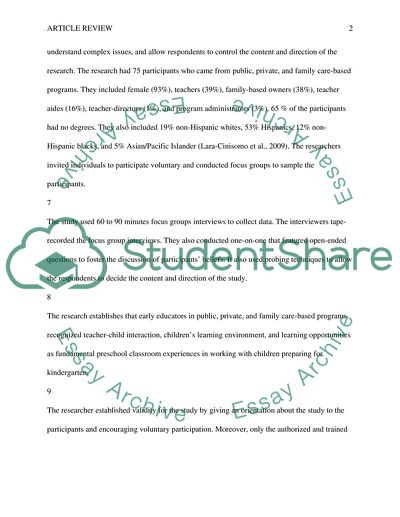A qualitative study of early childhood educators beliefs about key Essay. Retrieved from https://studentshare.org/english/1660862-a-qualitative-study-of-early-childhood-educators-beliefs-about-key-preschool-classroom-experiences
A Qualitative Study of Early Childhood Educators Beliefs about Key Essay. https://studentshare.org/english/1660862-a-qualitative-study-of-early-childhood-educators-beliefs-about-key-preschool-classroom-experiences.


